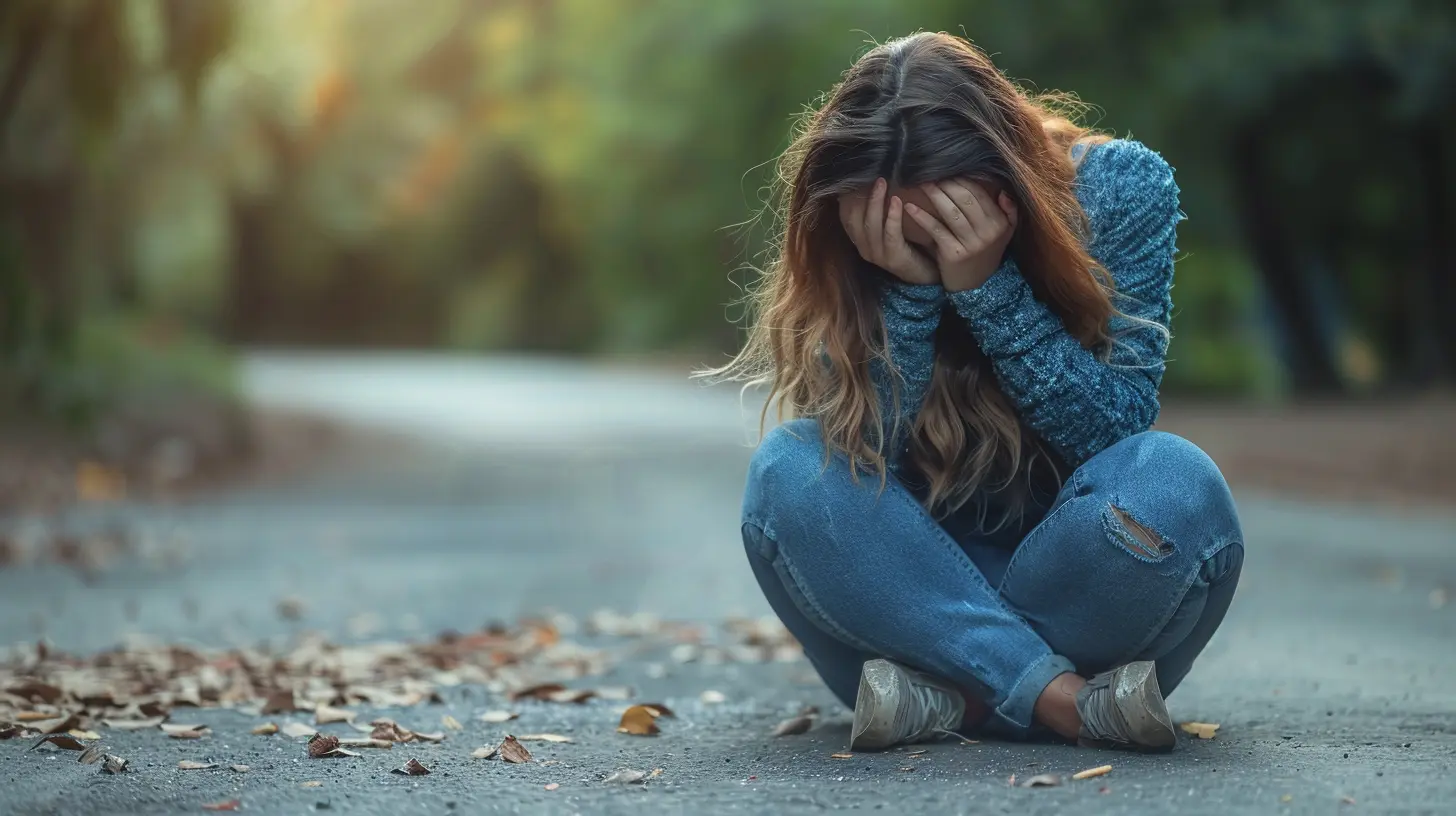Grief and Guilt: Understanding the Emotional Complexity
1 July 2025
Grief is a universal experience. At some point in life, we all face the profound emotional pain of losing someone or something we love. But what happens when that grief intertwines with another emotion—guilt? This emotional cocktail can be overwhelming, confusing, and difficult to navigate. In this article, we’ll explore the complex relationship between grief and guilt, why they often come together, and how to process them effectively.
What is Grief?
Grief is a natural response to loss. Whether it’s the death of a loved one, the end of a relationship, or even the loss of a job, grief is the emotional pain we feel when something significant is taken from us. It’s more than just sadness—grief can manifest in various ways, from physical symptoms like fatigue and headaches to emotional symptoms like anger, denial, or even numbness.Think of grief as a storm. It’s unpredictable, sometimes calm, sometimes wild, but it eventually passes. However, while it may pass, it often leaves behind lasting changes in the landscape of our emotional lives.
The Emotional Complexity of Grief
One of the hardest parts about grief is that it doesn't follow any specific rules. Everyone grieves differently, and there’s no set timeline for when we should "get over" a loss. Grief can be complicated, multi-layered, and messy.For many, grief isn’t a straight path toward healing. Instead, it’s more like a winding road, full of detours and unexpected turns. One of those unexpected turns is often guilt. It sneaks in, complicating the grieving process and making it even harder to find peace.
But why does guilt show up during grief? And, more importantly, what can we do about it?
The Unexpected Arrival of Guilt in Grief
It’s common to feel guilty while grieving, but why? Shouldn't grief only be about sadness? In reality, grief and guilt are often intertwined because loss brings up so many "what ifs" and "if onlys."You might catch yourself thinking, "If only I had done this differently," or, "What if I had been there more?" These thoughts are natural but can become a toxic cycle of self-blame. Let’s break down some of the common types of guilt people experience when grieving:
1. Survivor’s Guilt
This type of guilt is most commonly associated with people who have survived a tragic event while others did not. For instance, someone who survived a car accident where others lost their lives might feel intense guilt about being the one who lived.But survivor’s guilt can also appear in more everyday situations. For example, you might feel guilty about still being alive after a loved one passes away, questioning why you are here and they are not.
2. Regret-Based Guilt
Many people experience guilt over things they did or didn’t do before the loss occurred. Thoughts like, "I should have spent more time with them," or, "I wish I had been kinder," are common. This type of guilt is rooted in regret, and it can make mourning feel even more painful.3. Relief Guilt
This one can be particularly confusing. Sometimes, when a loved one has suffered for a long time—such as in cases of terminal illness—the end of their suffering might bring a sense of relief. Feeling relief is natural, but it’s often followed by guilt. You might feel wrong for feeling any sense of peace or release, even though the relief is more about ending their pain than your own.4. Guilt Over Moving On
As time passes, you may start to enjoy life again—laughing at jokes, spending time with friends, or even pursuing new hobbies. And then guilt hits. You might feel as if you’re betraying the memory of the person you lost by finding happiness again.
Understanding Why Grief and Guilt Are So Intertwined
So, why do grief and guilt often show up hand-in-hand? A big part of it is that grief forces us to confront the reality of loss, but guilt makes us question our role in that loss.In many ways, guilt is a coping mechanism. It’s easier to blame yourself than to face the idea that there are things in life you can’t control. If you can find something you did wrong, you can convince yourself that you could have prevented the loss. It’s a way of regaining control in a situation that feels deeply uncontrollable.
However, this self-blame is rarely rational. Loss is often out of our hands, and beating yourself up only prolongs the pain.
Processing Grief and Guilt: A Path Toward Healing
Now that we’ve identified why grief and guilt often go hand-in-hand, how do we start untangling the two and begin the healing process?1. Acknowledge Your Feelings
The first step to processing both grief and guilt is to acknowledge them. Don’t suppress your emotions or pretend they don’t exist. Instead, allow yourself to feel them fully. Cry if you need to. Write in a journal. Talk to a friend. Just don’t bottle it up.When we suppress our emotions, they tend to come back even stronger later. Grief is a natural part of the healing process. Guilt, while more complex, is also a signal from your mind that says, "Something needs attention here."
2. Challenge Guilt with Logic
Once you’ve acknowledged your guilt, challenge it. Ask yourself, "Is this guilt rational?" Did you really have control over the situation, or are you holding yourself to an impossible standard?For instance, if you feel guilty for not spending more time with a loved one before they passed, remember that life has its own demands. You had responsibilities, and you likely did the best you could at the time. Be kind to yourself.
3. Forgive Yourself
Forgiving yourself is easier said than done, but it’s crucial. You are only human, and humans make mistakes. Understand that feeling guilt is a sign of your compassion and care, but it doesn’t mean you’re at fault.Forgiving yourself doesn’t mean forgetting what happened; it means accepting that you did what was within your power, and that’s enough. If your guilt comes from regret, try to make peace with the fact that you can’t change the past. What you can do is learn from it and move forward with kindness toward yourself.
4. Seek Support
Grief and guilt are heavy burdens to carry alone. Don’t hesitate to seek support from others—whether that’s friends, family, or a professional therapist. Talking through your feelings with someone else can provide a fresh perspective and help you work through your emotions in a healthy way.A therapist, in particular, can help you untangle the complex emotions of grief and guilt. They can guide you through exercises to challenge irrational guilt and help you adopt healthier coping mechanisms.
5. Give Yourself Permission to Heal
One of the hardest parts of grieving is giving yourself permission to heal. It’s okay to move on. It’s okay to find joy again. Healing doesn’t mean you’re forgetting or dishonoring the person or thing you lost. It simply means you’re embracing life again, which is something they would probably want for you.The Importance of Self-Compassion
If there's one takeaway from all of this, it's the importance of self-compassion. Grief is hard enough on its own. Adding guilt to the mix only makes the emotional burden heavier.Being kind to yourself during this time is essential. Guilt can make you feel as if you're not allowed to move forward, but everyone deserves to heal, including you.
Try to treat yourself with the same kindness you would offer a close friend. If a friend came to you, racked with guilt while grieving, would you tell them they’re to blame? Probably not. You’d likely remind them that they did their best and that they deserve to find peace. Offer yourself the same grace.
Final Thoughts
Grief and guilt are two of the most challenging emotions we face as humans, and when they show up together, it can feel like an emotional storm that will never end. But, like all storms, this too will pass with time, self-care, and support.Remember, it’s okay to feel your emotions deeply, but it’s also okay to let go of guilt and allow yourself to heal. The road through grief is long and winding, but with patience and self-compassion, you will find your way to the other side.
all images in this post were generated using AI tools
Category:
Grief And LossAuthor:

Eliana Burton
Discussion
rate this article
2 comments
Kylie Morris
This article beautifully captures the tangled emotions of grief and guilt we often face. It’s a reminder that we’re not alone in our struggles. Understanding these complexities can truly aid in healing. Thank you for shedding light on this important topic!
December 5, 2025 at 3:47 PM

Eliana Burton
Thank you for your thoughtful comment! I’m glad the article resonated with you and helped shed light on such a complex topic.
Virginia Holland
This article beautifully captures the intricate relationship between grief and guilt. Acknowledging these emotions is vital for healing. Thank you for sharing such valuable insights!
July 9, 2025 at 4:47 PM

Eliana Burton
Thank you for your kind words! I'm glad you found the insights valuable. Acknowledging these emotions is indeed a crucial step in the healing process.


